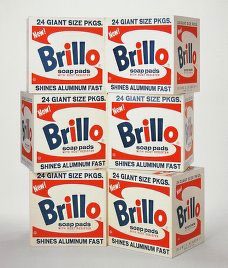
The avant-gardes turn experimentation into an act of purity, but also politics. These movements seek to bring art beyond the confines of the museum into the revolutionary streets. Theory plays a crucial role in such avant-garde projects because it is required by any avant-gardist who wishes to make art exemplary of the future. The painter of abstract grids (Mondrian), sculptor in plexi-glass and wire (Gabo), filmmaker of montage (Eisenstein) must articulate ideas that will empower their plastic media with such remarkable force. It is only through theory that art enters the whirl of political, visionary, revolutionary speech and "makes a statement". A critic, a "middleman" is needed to make that "statement" comprehensible to the dazed (hostile) public. This gap produces a Clement Greenberg, a Harold Rosenberg, who seek to bring the public to the "doors of perception". Avant-garde projects also give rise to philosophy which seeks to understand what they have sought to do -- and accomplished, and what the stakes therefore are for art generally (Arthur Danto). Then there are the critiques: of the commodification of the avant-gardes in the mid to late 20th century, the "success and failure of Picasso" (John Berger). Through close reading of works of art, attention to art history, and study of related theory, criticism and philosophy, this class will explore the nature of this avant-garde space where image and word demand each other. There will be one three page paper due at the mid-term on an assigned topic, and one final research paper due at the end of the class. Estimated cost of materials: $100 or more, but less than $150. IV. 4